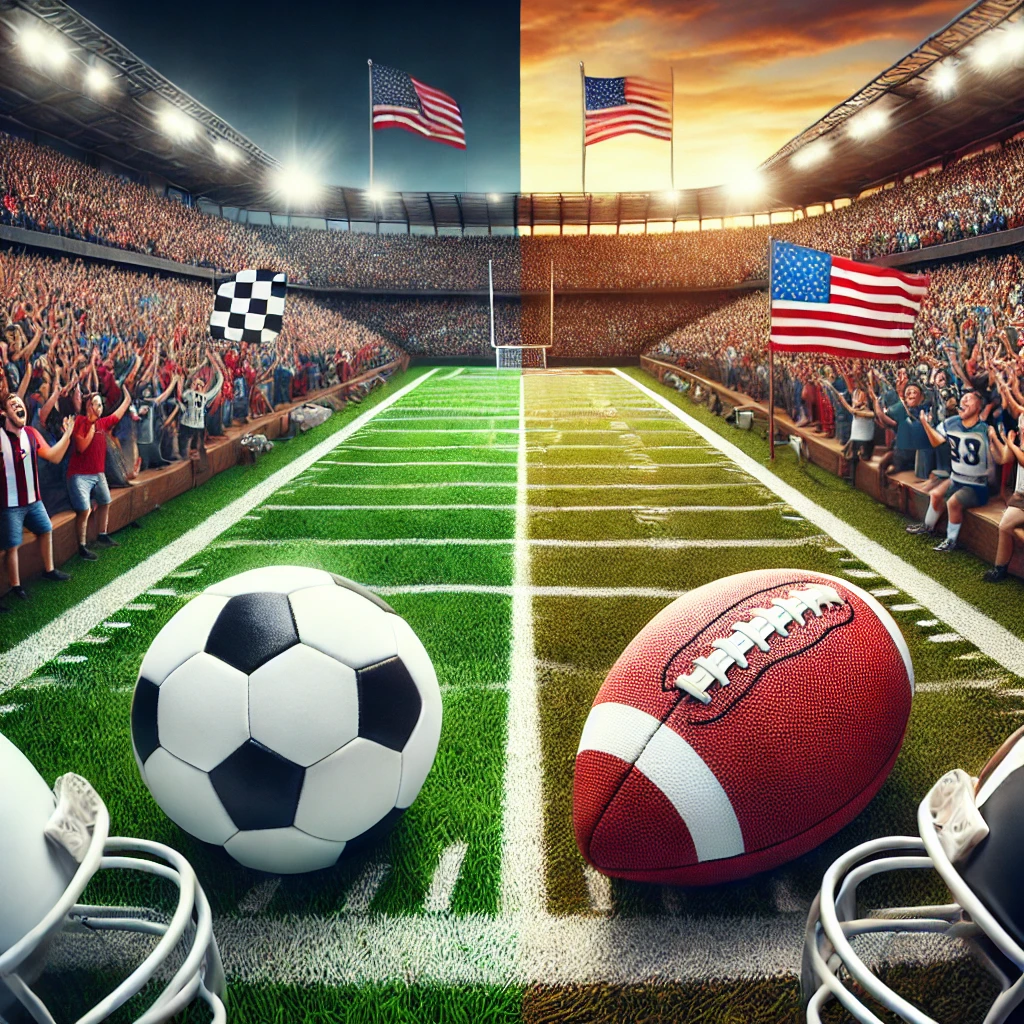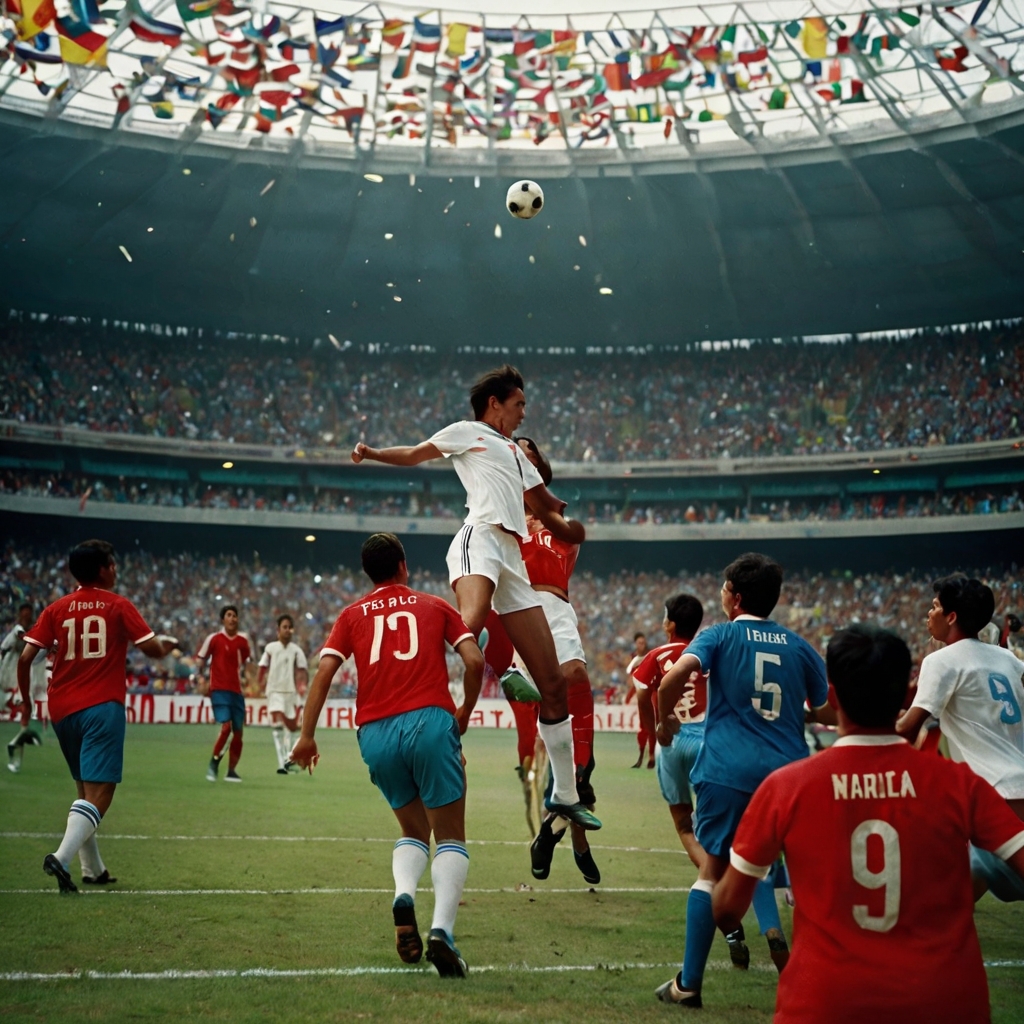Why Do Americans Call It Soccer?

The word “soccer” often sparks confusion among fans of the world’s most popular sport. While most countries refer to it as “football,” Americans, along with a few others, have opted for the term “soccer.” So, why exactly do Americans call it soccer? The answer lies in history, culture, and the evolution of language.
1. The Origins of the Word “Soccer”
The term “soccer” was actually coined in England, the very birthplace of modern football. In the 19th century, there were multiple forms of football, and the need arose to distinguish between them. Two main versions emerged: Rugby Football and Association Football. To differentiate, the British created nicknames for each. Rugby Football became “rugger,” and Association Football was shortened to “assoc.” Eventually, “assoc” morphed into “soccer,” a playful abbreviation that stuck.
For a time, both “football” and “soccer” were used interchangeably in England. However, as the popularity of rugby waned, “football” became the default term for the beautiful game, while “soccer” slowly fell out of favor.
2. Why Americans Adopted the Term “Soccer”
When soccer was introduced in the United States, a different form of football was already gaining traction: American football. To avoid confusion between the two sports, Americans adopted the term “soccer” to refer to association football, distinguishing it from their version of the game.
American football’s rise to prominence in the early 20th century pushed soccer to the sidelines, both linguistically and culturally. The term “soccer” became the dominant name for the sport in the U.S., and it remains that way to this day. In countries where rugby or American football plays a significant role, the term “soccer” is still used to avoid confusion.
3. The Difference Between Soccer and American Football
One of the key reasons Americans continue to call the sport “soccer” is the dominance of American football. In the U.S., football refers to the gridiron game, which involves helmets, pads, and a more physical style of play.
American football is vastly different from soccer in its rules, play style, and structure. In American football, players use their hands to pass or carry the ball, whereas soccer restricts hand usage to the goalkeeper. These distinctions mean that the term “football” in the U.S. is nearly synonymous with American football, making “soccer” a necessary alternative.
4. Why Hasn’t “Football” Taken Over in the U.S.?
In most of the world, soccer is known as “football” because the game is predominantly played with the feet. However, in the U.S., American football’s entrenched cultural significance prevents the transition from “soccer” to “football.”
American football is a billion-dollar industry, with the National Football League (NFL) leading the charge. It’s part of the national identity, and football games like the Super Bowl are cultural events watched by millions. This deep-rooted connection to American football means that switching the term “football” to describe soccer would cause confusion and resistance.
5. Soccer’s Growing Popularity in the U.S.
Despite the prominence of American football, soccer has been gaining popularity in recent decades. Major League Soccer (MLS) has expanded, and youth soccer programs are thriving. The U.S. women’s national soccer team has become a global powerhouse, contributing to the sport’s increased visibility.
As soccer grows in the U.S., there has been debate over whether the term “football” should replace “soccer.” However, for now, “soccer” remains the dominant term, especially as it helps differentiate between the two sports in a nation that embraces both.
6. Global vs. Regional Terminology
One of the fascinating aspects of the soccer vs. football debate is the regional difference in terminology. While the rest of the world uses “football,” countries like the U.S., Canada, Australia, and South Africa continue to use “soccer.” This linguistic divide illustrates the cultural variations in sports preferences and language development.
Interestingly, even though “soccer” is a British term, it fell out of use in the United Kingdom, where “football” became the accepted term. In the U.S., the opposite occurred, where soccer remained in use due to the dominance of American football. These regional terminological differences have persisted over time and show no signs of fading.
7. The Impact of Media and Globalization
In an increasingly globalized world, sports fans in the U.S. are more exposed to international soccer (football) events like the FIFA World Cup and the English Premier League. With this exposure, many Americans have become accustomed to hearing the sport referred to as “football.”
However, the widespread use of “soccer” in American media, marketing, and branding still holds strong. Major outlets like ESPN, FOX Sports, and NBC cover the sport using “soccer” in all references, which further solidifies the term in the U.S.
8. Will the U.S. Ever Call It Football?
It’s unlikely that the U.S. will switch from “soccer” to “football” in the near future. The cultural attachment to American football is too strong, and the word “soccer” is deeply embedded in the American lexicon.
However, younger generations, who are growing up watching both American football and global soccer, are becoming more familiar with the global term “football.” While a complete shift may never happen, the understanding of “football” as soccer in international contexts is becoming more widespread.
9. The Future of Soccer in America
With the rise of international soccer tournaments, the sport’s future in America looks promising. More Americans than ever are watching international leagues, and the popularity of the U.S. women’s national team continues to draw new fans.
Whether it’s called soccer or football, one thing remains certain: the sport’s ability to unite people from different backgrounds is unrivaled. As the U.S. continues to embrace the global game, the debate over “soccer” vs. “football” may one day fade into the background, allowing the game itself to take center stage.



